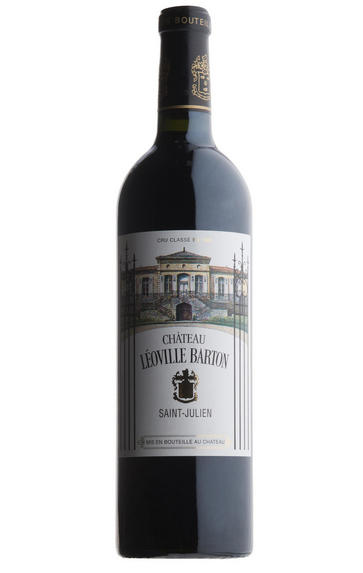
2008 Château Léoville Barton, St Julien, Bordeaux
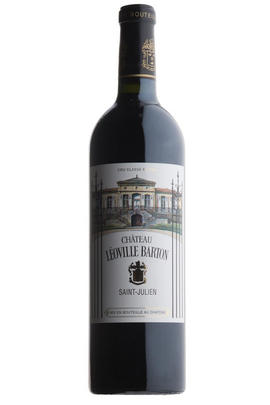
Critics reviews
The 2008 Léoville Barton has a lovely, heart-warming bouquet of ripe blackberry and cedar, touches of graphite, precise and supremely well-focused. Classic Barton. The palate is medium-bodied, fresh and lively with impressive density; it is structured with a firm backbone on the graphite-tinged and tensile finish that suggests that it deserves another 3-4 years in bottle. Excellent.
There was no easing into the job, and frankly, I would not want it any other way on my first day. Wines tasted in the morning at an annual ten-year on Bordeaux tasting on one side of the Atlantic, written up on the flight over to New York with my mouth still coated in tannin and completed on the other side of the Atlantic...just a day in the life, so that readers get an idea how things are going to roll with the 2008 Bordeaux.
Drink 2022 - 2045
Neal Martin, Vinous.com (February 2018)
This is an excellent St-Julien with a brisk attack and a rather lovely restrained, savoury edge to the tightly structured black fruits. It has great texture, and a silkier flesh to the fruit, which has depth and persistence. Fully ripe but not tiptoeing a single centimetre over the line - nor under it, unlike a few in this vintage. A good job.
Drink 2018 - 2035
Jane Anson, Decanter.com (January 2018)
Cherries, graphite, oak spice, bitter chocolate and cedar. All the classic Bordeaux boxes ticked, and there's plenty of heft in the structure. Should age admirably.
Drink 2018 - 2038
Richard Hemming MW, JancisRobinson.com (February 2018)
This was always one of the wines of the vintage with currant, cassis and chocolate aromas and flavors. Full body, chewy and polished tannins and a fresh and fine finish. Tight now but so beautiful. Decant a couple of hours before serving.
James Suckling, JamesSuckling.com (June 2016)
Another blockbuster, long-term wine from proprietor Anthony Barton, this 2008 is among the vintage's biggest, most back-strapping efforts. As with many vintages of Leoville Barton, it is best forgotten for another decade. An inky/purple colour is followed by notes of forest floor, camphor, red and black fruits, and a hint of wood. This brawny, masculine-styled St. Julien possesses a huge body, massive concentration, and mouth-searing tannin levels. However, the tannins are much sweeter than the 2005's were at the same stage, so that should be fine as long as potential purchasers exercise patience.
This impressively pure, classic Bordeaux should be at its finest between 2020 - 2050.
Robert M. Parker, Jr., Wine Advocate (April 2009)
A fresh, elegant, incredibly classic wine from this estate, the 2008 Léoville Barton shows the concentrated yet focused, masculine style of the vintage. Ample graphite, cassis, violets, and cedarwood notes all flow to a medium-bodied Saint-Julien that has good acidity, present tannins, and terrific purity of fruit. It offers pleasure today, in a firm, classical sense, yet needs another 4-5 years of bottle age to hit maturity and will cruise for another 25+ years.
Drink 2023 - 2048
Jeb Dunnuck, JebDunnuck.com (February 2019)
Bright ruby. Sexy, ripe nose combines cassis, Cuban cigar tobacco, licorice and minerals. Sweet, tactile and intense, with concentrated, sharply delineated flavours of dark fruits and minerals. Densely packed, ripe and deep. Offers a lovely combination of silky texture, firm structure and the aromatic lift and nuance of the vintage's best examples. Should age gracefully for at least 15 years.
Stephen Tanzer, Vinous.com (July 2011)
About this WINE
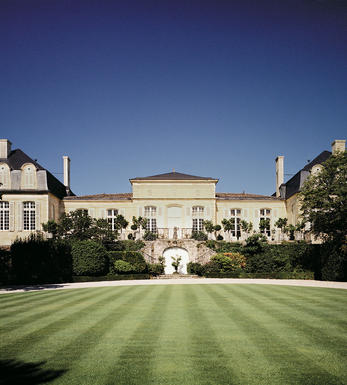
Chateau Leoville Barton
Château Léoville Barton is the smallest portion of the great Léoville estate and has been owned by the Barton family since 1826. There is no château and the wine is made at Langoa Barton.
Léoville Barton's 48 hectares of vineyards are located in the east of the St-Julien wine appellation and lie on gravelly-clay soils. They are planted with Cabernet Sauvignon 72%, Merlot 20%, Cabernet Franc 8%. The wine is matured in oak barriques (50% new) for 18 months.
Eighth and ninth-generation family members Lilian and Damien Barton took over the reins here in 2022, after the death of Anthony Barton. Anthony was responsible for the quality at Léoville Barton soaring; his tenure saw the wine changing from a solid, mid-performing 2ème Cru Classé to one of the most exciting and scintillating wines in St. Julien. Under Lilian and Damien’s care, business at the château is better than ever.
Léoville Barton is tannic and austere in youth but with time develops the classic cedary character that is the hallmark of St. Julien, along with intensely pure blackcurrant and cassis fruit notes. Léoville Barton's wines are made for extended cellaring and tend to show at their best with 10-15 years of bottle ageing.
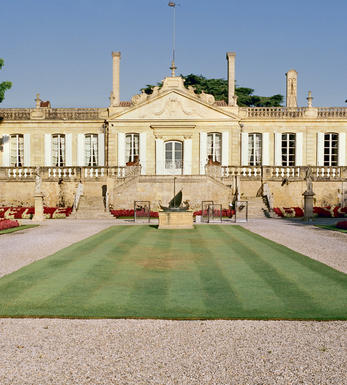
St Julien
St Julien is the smallest of the "Big Four" Médoc communes. Although, without any First Growths, St Julien is recognised to be the most consistent of the main communes, with several châteaux turning out impressive wines year after year.
St Julien itself is much more of a village than Pauillac and almost all of the notable properties lie to its south. Its most northerly château is Ch. Léoville Las Cases (whose vineyards actually adjoin those of Latour in Pauillac) but, further south, suitable vineyard land gives way to arable farming and livestock until the Margaux appellation is reached.
The soil is gravelly and finer than that of Pauillac, and without the iron content which gives Pauillac its stature. The homogeneous soils in the vineyards (which extend over a relatively small area of just over 700 hectares) give the commune a unified character.
The wines can be assessed as much by texture as flavour, and there is a sleek, wholesome character to the best. Elegance, harmony and perfect balance and weight, with hints of cassis and cedar, are what epitomise classic St Julien wines. At their very best they combine Margaux’s elegance and refinement with Pauillac’s power and substance.
Ch. Léoville Las Cases produces arguably the most sought-after St Julien, and in any reassessment of the 1855 Classification it would almost certainly warrant being elevated to First Growth status.
Recommended Châteaux: Ch. Léoville Las Cases, Ch.Léoville Barton, Ch Léoville Poyferré, Ch. Ducru-Beaucaillou, Ch Langoa Barton, Ch Gruaud Larose, Ch. Branaire-Ducru, Ch. Beychevelle
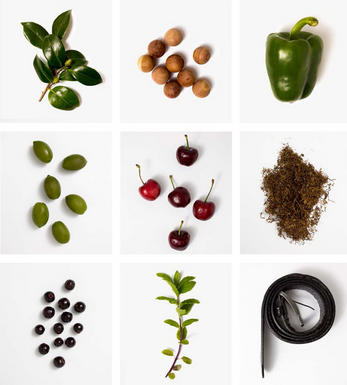
Cabernet Sauvignon Blend
Cabernet Sauvignon lends itself particularly well in blends with Merlot. This is actually the archetypal Bordeaux blend, though in different proportions in the sub-regions and sometimes topped up with Cabernet Franc, Malbec, and Petit Verdot.
In the Médoc and Graves the percentage of Cabernet Sauvignon in the blend can range from 95% (Mouton-Rothschild) to as low as 40%. It is particularly suited to the dry, warm, free- draining, gravel-rich soils and is responsible for the redolent cassis characteristics as well as the depth of colour, tannic structure and pronounced acidity of Médoc wines. However 100% Cabernet Sauvignon wines can be slightly hollow-tasting in the middle palate and Merlot with its generous, fleshy fruit flavours acts as a perfect foil by filling in this cavity.
In St-Emilion and Pomerol, the blends are Merlot dominated as Cabernet Sauvignon can struggle to ripen there - when it is included, it adds structure and body to the wine. Sassicaia is the most famous Bordeaux blend in Italy and has spawned many imitations, whereby the blend is now firmly established in the New World and particularly in California and Australia.


Buying options
Add to wishlist
Description
Very much the epitome of an English gentleman, the charming Anthony Barton must be one of the most reasonable proprietors in Bordeaux. Year after year he leads the quest for prices to come down; if only other châteaux owners would follow suit! The 2008 is loaded with massive, chewy tannins that coat the mouth while the underlying essence of dark, brooding blackcurrant fruit is perfectly complemented by notes of coffee and chocolate. It will take many years for the complexity and depth of this wine to shine through but the long, fulfilling finish is an indication of just how good it will become. This will be a force to be reckoned with when fully mature.
Berry Bros. & Rudd
wine at a glance
Delivery and quality guarantee